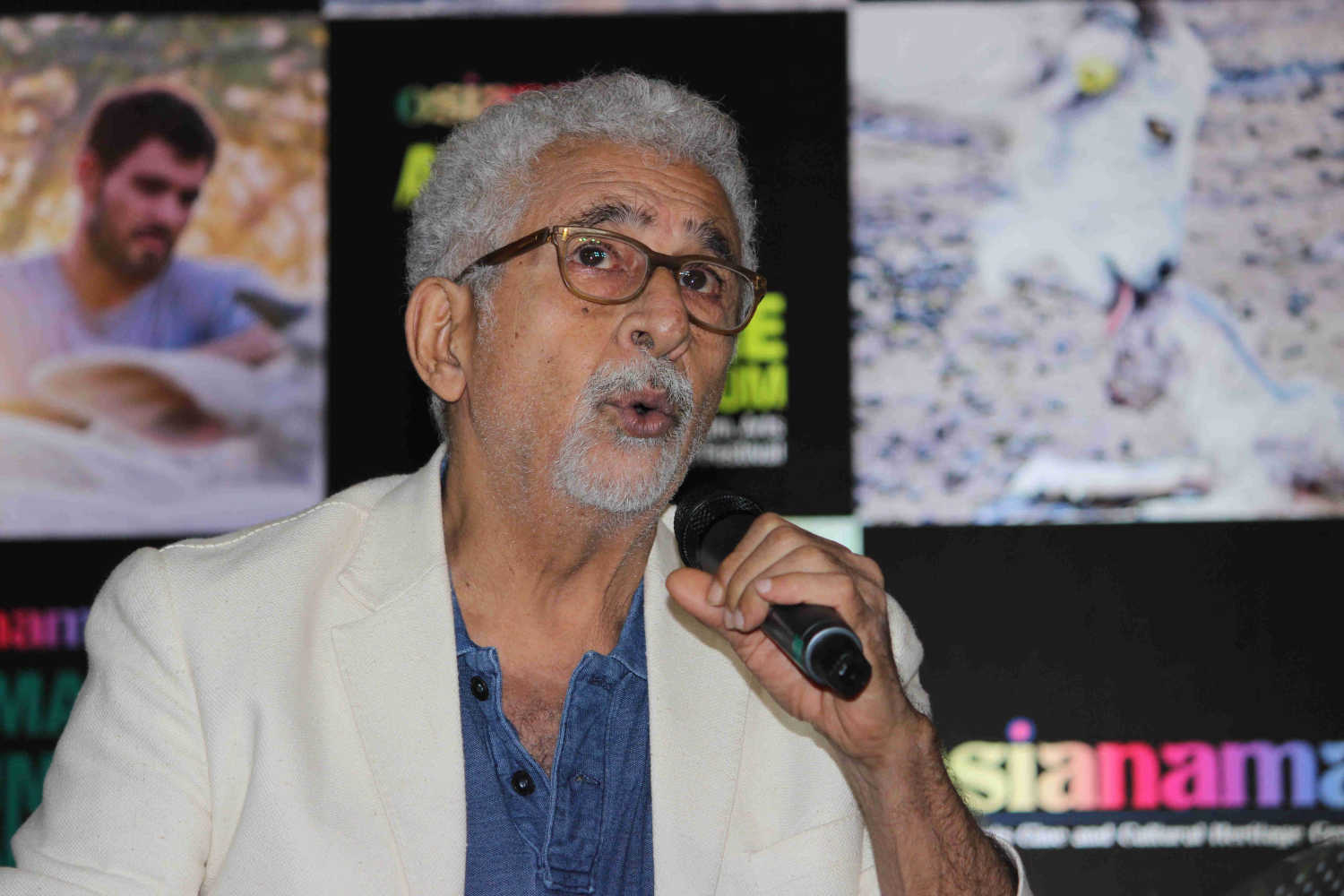The actor was speaking at a masterclass held by Osianama at Liberty theatre in Mumbai. Answering questions by host Neville Tuli, Shah spoke further on the controversy sparked by his comment on Rajesh Khanna.
What respect did film industry have for Rajesh Khanna when he was alive? asks Naseeruddin Shah
Mumbai - 10 Aug 2016 19:01 IST
Updated : 11 Aug 2016 10:44 IST


Shriram Iyengar
There are few actors in the industry as blunt and direct as Naseeruddin Shah. It is one of the more refreshing, and controversial, facets of the talented actor. Speaking at a masterclass held by Osianama in Mumbai on Tuesday, the actor raked up a few old skeletons again. In the middle of the event, host Neville Tuli asked Shah to clarify his comment that he considered commercial cinema plagiarised. Shah did not hold back.
"I was being asked about the mediocrity in Hindi cinema in general. I started talking about it using the period between the 1950s and the 1980s as a reference. I do think the situation got worse in the '80s and '90s. Let me not take any names," he said.
On further prodding, the actor revealed, "The coming of colour was the start of plagiarisation en masse in Hindi movies. It began in the early '70s. The mediocrity in music, lyric writing, scriptwriting, storytelling, acting, everything. Think back on who were the popular stars of the '70s, apart from Mr Khanna. Joy Mukherjee, Biswajeet? They were big stars... The trinity of Dev Anand, Raj Kapoor and Dilip Kumar were on the wane. Rajesh Khanna filled that role. The fact is that the industry used him, cast him away when he was no longer a money-minting machine."
On the suggestion that maybe that is how the film industry worked, Shah answered, " Well, Mr Khanna could have prevented it if he had been more on his guard. Which is what I was trying to explain."
Recently, Shah had suggested that Rajesh Khanna's entry into Hindi cinema came at a time of poor creativity in the industry. His description of Khanna as a 'mediocre actor' further enraged fans and several members of the film fraternity.
At the masterclass, Shah did not sidestep or try to evade controversy by avoiding the question. About the controversy, he said, "Everybody who has got upset with what I said, none of them contradicted me. They only said how can you say something like this? Have some respect for the dead... What respect did the film industry have for Rajesh Khanna when he was alive, is my question. He was put on the shelf... and they all say he had thousands of people outside his bungalow. Does that make him a great actor? Anyone who has thousands of people outside his bungalow is a great actor, is that what you are trying to say?"
Shah did try to soften the blow, saying, "Certainly, I am not denying that. I am talking of his contribution by and large. I loved his performance in Amar Prem. I liked his performance in Aradhana. I did not like any other, I was not a big fan."
However, the Waiting (2016) actor brushed off any allegations of his 'distaste' for commercial cinema. He pinpointed Manmohan Desai's blockbuster Amar Akbar Anthony as one of the "finest films ever made". Shah said, "I still consider Amar Akbar Anthony one of the finest films the Hindi industry ever made. Firstly, it was not plagiarised. No matter how absurd it is, it was made with complete conviction."
The actor also disagreed with the desire to create 'entertaining' films that find commercial success. He spoke out against the Rs100 crore and Rs200 crore clubs saying, "Would you call the desire to multiply your investment a hundredfold creativity?"
The actor suggested that the growing trend of 'commercial' films had numbed audience sensibilities. He said, "What Hindi movies have done, systematically, over the years is numbed the senses of the audience, so that the audience will continue to enjoy that sensation. If the audience is not supplied anything else, they will take whatever is available. It depends on how the herd is managed. The responsibility of the industry is not to let the herd run riot... and managing the herd after so much water has flowed is impossible. A small beginning has been made, and it is tough. But that is what needs to be done."
With a 700-strong audience, Shah also spoke about the craft of acting, and his journey through the years. Yet, it was his discussion on the 'celebrated 1970s' often considered commercial Hindi cinema's best phase which stood out.


